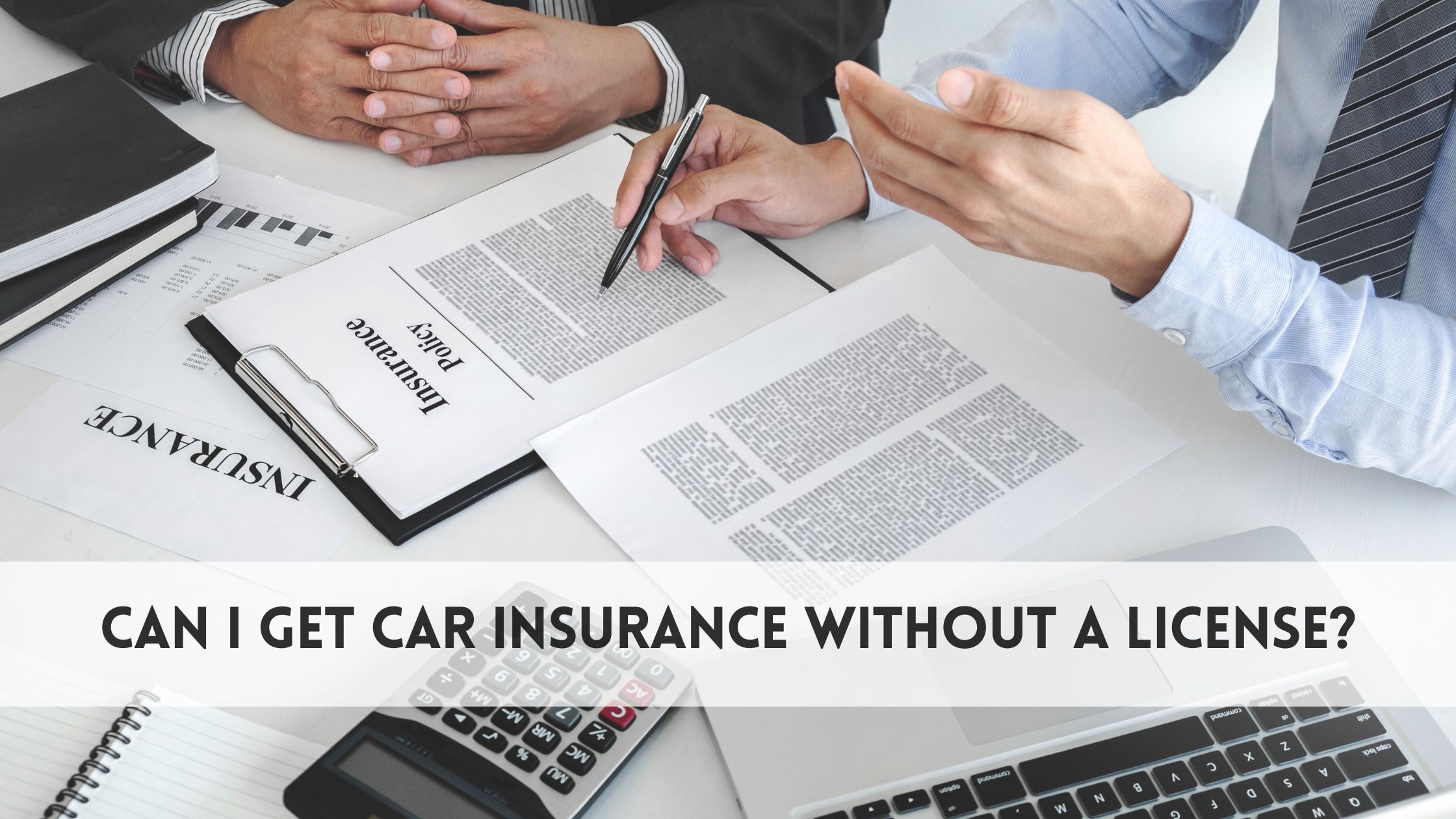How much is small business insurance?

Small business insurance is a crucial safeguard for protecting your company from unforeseen risks that could disrupt operations and lead to significant financial losses. Whether it’s due to property damage, employee injuries, lawsuits, or natural disasters, having the right insurance coverage ensures that your business remains financially stable and resilient during challenging times. So, How much is small business insurance?
Small business insurance includes various coverage options tailored to meet the unique needs of your business. These include general liability insurance, which protects against third-party injuries or property damage, property insurance that covers your business assets, and workers’ compensation insurance for employee injuries. There are also specialized policies such as professional liability insurance and cyber liability insurance.
Insurance prices vary based on factors like the industry, business size, location, and the type of coverage you choose. Knowing what to expect in terms of cost helps you make an informed decision and ensures that your business is adequately protected.
How much is small business insurance?
The cost of small business insurance can vary greatly depending on several factors. Generally, small businesses can expect to pay between $300 to $1,000 annually for basic coverage. This range includes policies that cover general liability, property damage, and workers’ compensation. However, the cost may increase with additional coverages or higher policy limits.
| Type of Insurance | Average Annual Cost |
| General Liability Insurance | $400 – $600 |
| Property Insurance | $500 – $1,000 |
| Workers’ Compensation | $0.75 per $100 payroll |
| Professional Liability Insurance | $500 – $1,500 |
| Commercial Auto Insurance | $1,200 – $2,500 |
General Liability Insurance
General liability insurance is one of the most essential types of coverage for small businesses. It protects your business from financial loss if you’re held liable for accidents, injuries, or property damage that occur on your premises or as a result of your operations. This includes coverage for medical expenses, legal fees, and damages awarded in lawsuits. For example, if a customer slips and falls in your store, general liability insurance would cover the associated costs. Whether you’re a small retail shop or a service-based business, general liability insurance provides crucial protection and can help you avoid significant financial setbacks due to unforeseen events.
Property Insurance
Property insurance is crucial for small businesses that own or lease physical locations, such as office spaces or storefronts. This coverage protects your business’s physical assets, including buildings, equipment, inventory, and furniture, from damage caused by events like fires, theft, vandalism, or natural disasters. Without property insurance, businesses would have to bear the full cost of replacing or repairing damaged property out of pocket, which can be financially devastating. Additionally, property insurance can help cover loss of income during periods when business operations are temporarily halted due to property damage. This insurance is especially important for businesses that depend on maintaining physical assets for daily operations.
Workers’ Compensation Insurance
Workers’ compensation insurance is required by law in most states for businesses that have employees. This insurance provides benefits to employees who are injured on the job, covering medical expenses, rehabilitation costs, and lost wages during recovery. In addition to protecting your employees, workers’ compensation insurance also shields your business from lawsuits related to workplace injuries. This type of coverage is especially critical for businesses in industries with higher injury risks, such as construction, manufacturing, and healthcare. Workers’ compensation ensures that employees are cared for in case of injury, while also protecting the business from financial loss and legal issues.
Professional Liability Insurance
Professional liability insurance, also known as errors and omissions (E&O) insurance, is designed for businesses that provide professional services, such as consultants, accountants, or lawyers. It protects your business against claims of negligence, errors, or failure to perform professional duties as expected. If a client sues for mistakes made during the provision of services or due to advice that led to financial losses, professional liability insurance will cover the legal costs, including settlements or judgments. This insurance is crucial for service-oriented businesses, as it provides financial protection when clients challenge your services or claim that your work caused harm to their business.
Commercial Auto Insurance
Commercial auto insurance is a specialized policy designed for vehicles used in business operations. This insurance provides coverage for damages or injuries that occur as a result of accidents involving company-owned vehicles. Whether your business owns a fleet of delivery trucks or uses a single car for client meetings, commercial auto insurance protects against liability, collision, and comprehensive damage. It also covers medical expenses if employees are injured while driving for work-related purposes. Unlike personal auto insurance, commercial auto insurance is tailored to the unique needs and risks associated with using vehicles for business. It ensures that your business is covered in case of accidents involving company vehicles.
Why Do I Need Small Business Insurance?
Having small business insurance is essential to protecting your business from various risks that can otherwise lead to financial instability. Here’s why small business insurance is a must:
Protection Against Legal Claims
- Lawsuit Defense: Legal claims, such as those related to negligence, defamation, or wrongful termination, can be financially devastating. Small business insurance can cover the cost of legal defense, settlements, and judgments.
- Contractual Disputes: Disagreements over contracts or terms of service can result in costly lawsuits. Insurance provides financial support during these disputes.
- Employee Lawsuits: Employees may file lawsuits for issues like harassment or discrimination. Small business insurance helps cover the associated legal costs.
- Peace of Mind in Compliance: It also helps ensure that your business complies with local and federal laws that require certain coverages, providing peace of mind against unexpected legal issues.
Property Protection
- Damage from Natural Disasters: Unforeseen events like fires, floods, and earthquakes can cause severe damage to your business property. Insurance ensures you can rebuild or repair without crippling financial loss.
- Protection Against Theft: In the event of burglary or vandalism, property insurance helps recover losses related to stolen equipment, inventory, and other essential assets.
- Business Interruption Coverage: If a disaster prevents your business from operating, property insurance with business interruption coverage can help replace lost income while repairs are made.
- Asset Preservation: Insurance ensures the financial preservation of your business assets, helping you maintain operations in the face of setbacks.
Employee Welfare
- Workers’ Compensation: In many states, workers’ compensation is legally required. It helps cover medical expenses and lost wages if an employee is injured while on the job.
- Employee Benefits: Providing workers’ compensation and other related coverage fosters a sense of security and well-being among your employees, improving morale and retention.
- Legal Compliance: Having this insurance ensures your business complies with state and federal laws regarding employee safety, reducing the risk of legal penalties.
- Protection for Your Business: By covering medical and legal costs associated with workplace injuries, workers’ compensation protects your business from lawsuits related to workplace accidents.
Peace of Mind
- Minimize Financial Risks: Knowing that your business is protected from unforeseen events lets you focus on growth and operations without constantly worrying about potential financial setbacks.
- Ability to Scale Safely: With the right insurance, you can scale your business more confidently, knowing that you have coverage for any challenges that may arise as you expand.
- Risk Management: Insurance helps you manage and mitigate risks, providing security against a variety of possible threats to your business.
- Long-Term Stability: By proactively managing potential risks, small business insurance contributes to the long-term stability and success of your business.
Factors That Affect the Cost of Small Business Insurance
The cost of small business insurance can vary depending on several key factors. Here are the most influential ones:
Type of Business
The type of business you operate plays a significant role in determining your insurance premium. High-risk industries, such as construction, healthcare, and manufacturing, often face higher premiums. These businesses are more likely to experience accidents, employee injuries, or lawsuits, making insurers see them as higher-risk entities. For example, a construction business may face higher premiums for general liability or workers’ compensation due to the physical nature of the work. On the other hand, businesses in lower-risk industries, such as accounting or consulting, typically pay lower premiums due to fewer exposure risks. Understanding your industry risk profile is key when calculating insurance costs.
Business Location
Your business location can greatly influence the cost of your insurance. Areas prone to natural disasters, such as floods, earthquakes, or hurricanes, will often have higher insurance premiums, especially for property insurance. Insurers factor in local risks like climate conditions, crime rates, and the proximity to emergency services when determining rates. For example, businesses located in flood zones or areas with a history of wildfires will pay more for property coverage. Additionally, urban areas with higher population densities might have higher premiums due to a higher risk of accidents and claims. Always check the risk factors tied to your location before buying insurance.
Business Size
The size of your business, including the number of employees and the scale of operations, plays a critical role in determining the cost of small business insurance. Larger businesses often face higher premiums due to the increased complexity and risks associated with managing more employees, properties, and operations. More employees increase the likelihood of workplace injuries or claims, leading to higher workers’ compensation and general liability premiums. Similarly, businesses with more significant revenue or assets may need higher coverage limits to protect their property and investments, which can also raise premiums. Smaller businesses generally benefit from lower rates due to fewer risks and smaller scopes.
Claims History
A business’s claims history is one of the most influential factors in determining the cost of insurance premiums. If your business has a track record of frequent or large insurance claims, insurance providers may view it as a higher risk and increase your premiums. A history of claims, especially those involving worker injuries or property damage, can signal to insurers that your business is more likely to file future claims. On the other hand, maintaining a clean claims history can help you secure lower rates and demonstrate to insurers that your business manages risks effectively. Reducing claims can significantly reduce long-term insurance costs.
Coverage Limits
Coverage limits directly affect the cost of your small business insurance. The higher the coverage limit you choose, the more expensive your premium will be. Coverage limits refer to the maximum amount your insurance provider will pay in case of a claim, and selecting a higher limit ensures that your business has greater protection. However, it’s important to balance your coverage with your budget. While high coverage limits can provide extra peace of mind, they can also lead to higher premiums that may not be necessary for your business’s size or needs. Carefully assess your risk exposure to determine the appropriate coverage limits.
Deductibles
Choosing a higher deductible is a strategy that can help lower your insurance premiums. The deductible is the amount you pay out of pocket before your insurance coverage kicks in. By opting for a higher deductible, you are agreeing to cover more of the costs upfront in the event of a claim. This lowers the risk for insurers and, in turn, reduces the premium you pay. However, this strategy is only beneficial if your business has the financial capability to cover the higher deductible if an incident occurs. Businesses with tight cash flow may prefer a lower deductible, even if it results in higher premiums.
How Much Is Small Business Insurance Per Month?
The monthly cost of small business insurance varies based on your business’s risk factors and coverage needs. On average, small business owners pay around $25 to $80 per month for basic policies. However, for more comprehensive coverage for businesses in high-risk sectors, monthly premiums can be higher.
| Type of Coverage | Average Monthly Cost |
| General Liability | $33 – $50 |
| Property Insurance | $42 – $83 |
| Workers’ Compensation | $0.06 per $100 payroll |
| Professional Liability | $42 – $125 |
| Commercial Auto | $100 – $208 |
How to Lower Your Small Business Insurance Costs?
While small business insurance is necessary, there are several ways to reduce your premiums without sacrificing coverage. Here are some actionable tips to help lower your costs:
Shop Around
- Compare quotes from multiple insurance providers to ensure you’re getting the best rate.
- Use online comparison tools to quickly check different policies and prices.
- Don’t settle for the first policy; each provider has different pricing structures.
Increase Your Deductible
- A higher deductible can significantly lower your monthly premiums.
- Ensure that you have enough savings to cover the higher deductible in case of a claim.
- Consider increasing your deductible if your business can handle a larger upfront cost.
Bundle Policies
- Bundling policies, such as general liability and property insurance, can result in discounts.
- Many insurers offer package deals for small businesses that cover multiple risks.
- This strategy simplifies your insurance management while reducing overall costs.
Implement Safety Measures
- Invest in employee safety training to reduce workplace accidents and injuries.
- Install safety equipment, like fire alarms and security cameras, to prevent loss or theft.
- A safer workplace results in lower workers’ compensation premiums and liability claims.
Maintain a Claims-Free History
- Avoid frequent claims to show that your business is low-risk to insurance companies.
- Keep your risk management practices in check to minimize the chance of a claim.
- Insurers typically reward businesses with fewer claims by offering lower premiums.
Review Your Policy Annually
- Regularly assess your coverage to ensure it still meets your business’s needs as it grows.
- Check if any risks have changed, such as expanded operations or new equipment.
- Adjust your policy to eliminate unnecessary coverage and reduce costs.
Final Words
So, How much is small business insurance? Small business insurance is a vital tool for protecting your business from unexpected risks and financial setbacks. The cost of insurance depends on various factors such as the type of coverage, business size, and industry. By taking proactive steps to manage your premiums, such as shopping around for the best rates, bundling policies, and investing in workplace safety measures, you can lower your insurance costs without compromising on protection. Additionally, reviewing your policy annually ensures it aligns with your evolving business needs.
The right insurance policy safeguards your assets, employees, and operations, offering peace of mind and helping you focus on growing your business. Whether you are a startup or an established company, having the proper coverage allows you to navigate challenges confidently, knowing you are protected from potential financial losses. Investing in comprehensive yet affordable small business insurance is an essential part of managing long-term business success.



